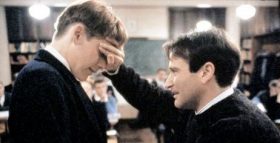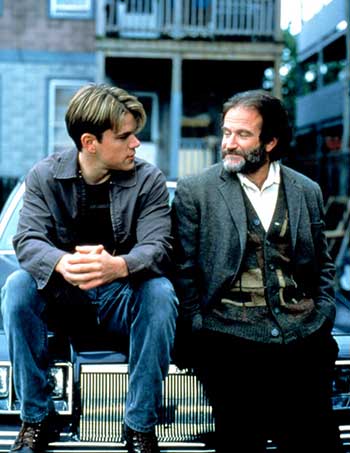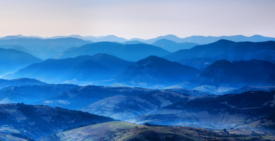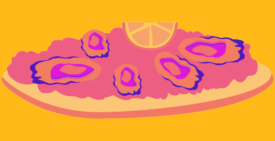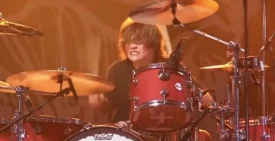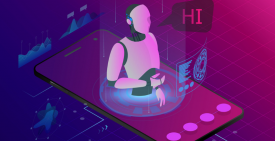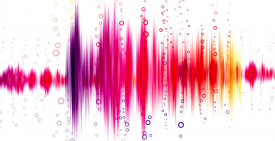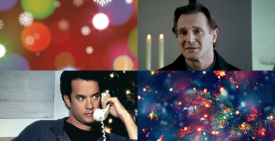Last week, if I’d been asked for my favorite actor, or even comedian, I don’t know if I’d have said Robin Williams. I can’t remember the last time I’d seen a new movie of his or re-watched a clip of him on TV. But news of his death deeply upset me.
I was picking up my daughter from camp when I heard the phone alert: Robin Williams found dead in his home. She was in the middle of telling me a story and I had to interrupt her to catch my breath. As she continued, I felt vaguely annoyed I couldn’t put aside my parenting duties and search out the details.
Later, I comforted myself diving into social media, discovering and sharing rare photos of Williams performing as a mime in San Francisco or clips of him improvising in French on Canadian TV, each “like” and “favorite” acting as an understanding head nod or shoulder pat across the expansive digital landscape. But over the next few days I still couldn’t shake my sadness and my desire to dwell online felt unhealthy. More than anything I was perplexed about why I seemed to be so heavily affected by this particular pop culture death.
To say I’m familiar with loss is an understatement. My mother died in a car accident before I turned three. My father died of AIDS when I was 21. As an only child I always felt alone in grieving my parents. I’d never met anyone who could relate to my particular shade of grief. I always wonder if this is why I turn to social media in times of crisis and loss. Do we focus on celebrity deaths because we yearn for a collective experience of mourning that can be absent in our own personal encounters with death?
But there was something more in the death of Robin Williams, this gentle man who took his own life. The details are, of course, heart-breaking. He left behind a college-aged daughter and two sons. He died before “his time” and in a way that might have been avoided with the right interventions. And there’s the sobering reality that he made people so happy while suffering from severe depression (perhaps compounded by the diagnosis of Parkinson’s).
But what really gets to me is what his loss lays bare: I was used to living in a world where Robin Williams continued to exist. With him gone, this world has been altered, and with it my sense of self. When you lose both parents you have to adjust to not being anyone’s child anymore. Because my parents died young I learned this lesson prematurely, long before I was ready. But I was always comforted by the knowledge that in the larger culture I still felt like a kid, more young than old.
I grew up in Robin Williams’ world. I experienced different versions of myself through his TV shows, movies and projects. Back in the olden days, when there were only three networks, and TV played the role of babysitter, “Mork and Mindy” was one of my favorite shows. I was nine when I my dad took me to see “Popeye” and maybe 11 when I recognized Williams milling around a comedy club in my San Francisco neighborhood. I shyly asked for his autograph—my first brush with celebrity!—and his scribbled signature remained in my photo album for decades.
As I went through my teen and young adult years I enjoyed watching Williams’s more serious films. Thanks to “Dead Poets Society,” “Carpe Diem” became my beloved grandmother’s go-to motto whenever I called her feeling blue. Seize the Day! she would command me, adding, Carp Diem! (Munca wasn’t an ace at pronunciations.) I stopped watching when his films ventured into more family-friendly, hackneyed territory (hello, “Patch Adams”) but always felt his presence, co-hosting telethons, gracing the cover of national glossies, just being Robin Williams, breathlessly improvising in whatever setting he appeared.
I feel with Robin Williams the way I felt with the loss of Lou Reed, Philip Seymour Hoffman and Harold Ramis. Each indelibly shaped the culture I grew up in. Lou Reed provided the soundtrack to my father’s exploration of gay life in the 70s and the Velvet Underground inspired the lo-fi losers-are-winners sound of my generation. As the creative force behind “Animal House,” “Caddyshack,” “Ghostbusters,” and “Groundhog Day,” Harold Ramis helped define the anti-authoritarian humor adopted by every smart aleck kid I grew up with. And Philip Seymour Hoffman? Pretty much present in every art-house movie date in my 20s and 30s.
The deaths of these figures feel like the slamming of a generational door. People younger than myself may not love, or even know, their music and TV and movies. They won’t remember feeling like their work was always there, always in the background, as stable and as comforting as our parents’ footsteps in the hall. They’re already quoting pop songs and people whose faces I don’t recognize on the cover of Us Weekly. Increasingly, I need to explain the context of a Williams quote I toss into conversation. It’s a discomforting disconnect.
These celebrity deaths remind us of our own parents dying, the inevitable fading of the Baby Boomer influence. Suddenly we’re left to be the grown ups, the cultural elders. And I’m just not ready for that quite yet.
Alysia Abbott is a freelance writer and the author of “Fairyland, A Memoir of My Father” (W.W. Norton). Her work has appeared in Real Simple, among other venues. She also teaches memoir at Grub Street in Boston, where she lives with her husband and two children.

